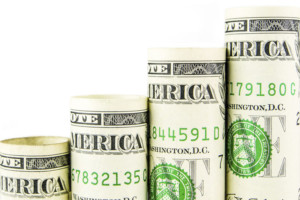 The human population is growing at a rapid pace, and in the U.S., this growing population is also aging. The babies born after the Second World War, often referred to as “Baby Boomers,” are now reaching retirement age and eligible for Medicare. The Kaiser Family Foundation reports that almost 10,000 Baby Boomers turn 65 on a daily basis! That’s almost 90 million Baby Boomer eligible for Medicare by 2050. Read Moreabout Baby Boomers & Medicare Fraud
The human population is growing at a rapid pace, and in the U.S., this growing population is also aging. The babies born after the Second World War, often referred to as “Baby Boomers,” are now reaching retirement age and eligible for Medicare. The Kaiser Family Foundation reports that almost 10,000 Baby Boomers turn 65 on a daily basis! That’s almost 90 million Baby Boomer eligible for Medicare by 2050. Read Moreabout Baby Boomers & Medicare Fraud
How a Pharmacist Becomes A Qui Tam Whistleblower
 As front-line professionals responsible for dispensing medications to Medicaid beneficiaries, pharmacists are particularly well positioned to discover and report Medicaid fraud. As a result, pharmacists have initiated a number of highly successful qui tam actions under the False Claims Act. Time after time, successful qui tam whistleblower actions by pharmacist relators have successfully recovered taxpayer funds.
As front-line professionals responsible for dispensing medications to Medicaid beneficiaries, pharmacists are particularly well positioned to discover and report Medicaid fraud. As a result, pharmacists have initiated a number of highly successful qui tam actions under the False Claims Act. Time after time, successful qui tam whistleblower actions by pharmacist relators have successfully recovered taxpayer funds.
Read Moreabout How a Pharmacist Becomes A Qui Tam Whistleblower
Medicaid and the False Claims Act
 Healthcare is the largest single cost in the federal budget – approximately 22 percent of the total — and the cost increases dramatically from year to year. With fraud following that money, the government is highly incentivized to investigate and prosecute corruption in the healthcare and pharmaceutical industries.
Healthcare is the largest single cost in the federal budget – approximately 22 percent of the total — and the cost increases dramatically from year to year. With fraud following that money, the government is highly incentivized to investigate and prosecute corruption in the healthcare and pharmaceutical industries.
False Claims Act violations involve making fraudulent medical billing claims for payment from the government healthcare programs. One of the largest programs is Medicaid, healthcare for the indigent. Fraudulent conduct can involve overbilling, or receiving payments under these programs while not in compliance with healthcare regulations. Qui tam law suits brought by Medicaid fraud attorneys have recovered billions of dollars from companies committing health care fraud.
Billions in Recoveries For Qui Tam Whistleblowers
 More than $30 billion has been recovered in Federal civil actions under the False Claims Act (“FCA”) since the statute which originated in the Civil War era, was amended in 1986 to provide enhanced rewards and protections for qui tam whistleblowers.
More than $30 billion has been recovered in Federal civil actions under the False Claims Act (“FCA”) since the statute which originated in the Civil War era, was amended in 1986 to provide enhanced rewards and protections for qui tam whistleblowers.
In fiscal year 2014, $5.69 billion in fraud against the government was recovered for taxpayers. Most of these cases were brought by qui tam relators, whistleblowers who come forward with their qui tam attorneys to report alleged fraud, and can receive 15-to-25 percent of the recoveries. This was another record year for Federal False Claims Act recoveries, according to the U.S. Department of Justice.
Without qui tam whistleblowers, billions of dollars of fraud payments or demands for payment hidden from the Government would have gone unnoticed. This stolen money would have remained in the pockets of individuals and entities responsible for the frauds, but courageous whistleblowers stepped up to return defrauded dollars to the U.S. Treasury and, as a result, shared in those recoveries.
Read Moreabout Billions in Recoveries For Qui Tam Whistleblowers
Johnson and Johnson Pays $149 Million to Settle Risperdal Kickback Case
 On November 4, 2013, after nearly six years of litigation, Johnson & Johnson, the self-proclaimed “family company,” agreed to pay $149 million to the federal government, the states of California, Kentucky, Indiana, and Massachusetts, and the Commonwealth of Virginia, to settle Medicaid fraud claims under the False Claims Act. (Johnson & Johnson Press Release)
On November 4, 2013, after nearly six years of litigation, Johnson & Johnson, the self-proclaimed “family company,” agreed to pay $149 million to the federal government, the states of California, Kentucky, Indiana, and Massachusetts, and the Commonwealth of Virginia, to settle Medicaid fraud claims under the False Claims Act. (Johnson & Johnson Press Release)
The qui tam action alleged that pharmaceutical manufacturer Johnson & Johnson paid Omnicare pharmacies kickbacks for switching nursing home patients from their anti-psychotic to the Johnson & Johnson product Risperdal® to significantly increase sales and profits. Omnicare is the largest pharmacy supplying drugs to nursing homes in the United States. The qui tam lawsuit was brought by Chicago whistleblower law firm Behn & Wyetzner, Chartered and led by qui tam lawyers Linda Wyetzner, Michael Behn, and William W. Thomas. The Philadelphia whistleblower law firm of Kenney & McCafferty, P.C. also worked on the case.
Read Moreabout Johnson and Johnson Pays $149 Million to Settle Risperdal Kickback Case
Whistleblower Lawsuits Secure $2.9 Billion for the Federal Government Under the False Claims Act in Fiscal Year 2013
 According to a press release issued by the Department of Justice, the federal government recovered over $3.8 billion from False Claims Act cases in 2013. Of the $3.8 billion, $2.9 billion resulted from whistleblower suits filed under the qui tam provisions of the Act. This is the fourth year in a row recoveries under the False Claims Act have topped $3 billion, and this year’s number is surpassed only by last year’s record-breaking recovery of nearly $5 billion. Although health care fraud continues to drive record recoveries, this year prosecutions of procurement and defense contracting fraud returned a record setting $890 million to the U.S. Treasury.
According to a press release issued by the Department of Justice, the federal government recovered over $3.8 billion from False Claims Act cases in 2013. Of the $3.8 billion, $2.9 billion resulted from whistleblower suits filed under the qui tam provisions of the Act. This is the fourth year in a row recoveries under the False Claims Act have topped $3 billion, and this year’s number is surpassed only by last year’s record-breaking recovery of nearly $5 billion. Although health care fraud continues to drive record recoveries, this year prosecutions of procurement and defense contracting fraud returned a record setting $890 million to the U.S. Treasury.
“It has been another banner year for civil fraud recoveries, but more importantly, it has been a great year for the taxpayer and for the millions of Americans, state agencies and organizations that benefit from government programs and contracts,” said Assistant Attorney General Delery.